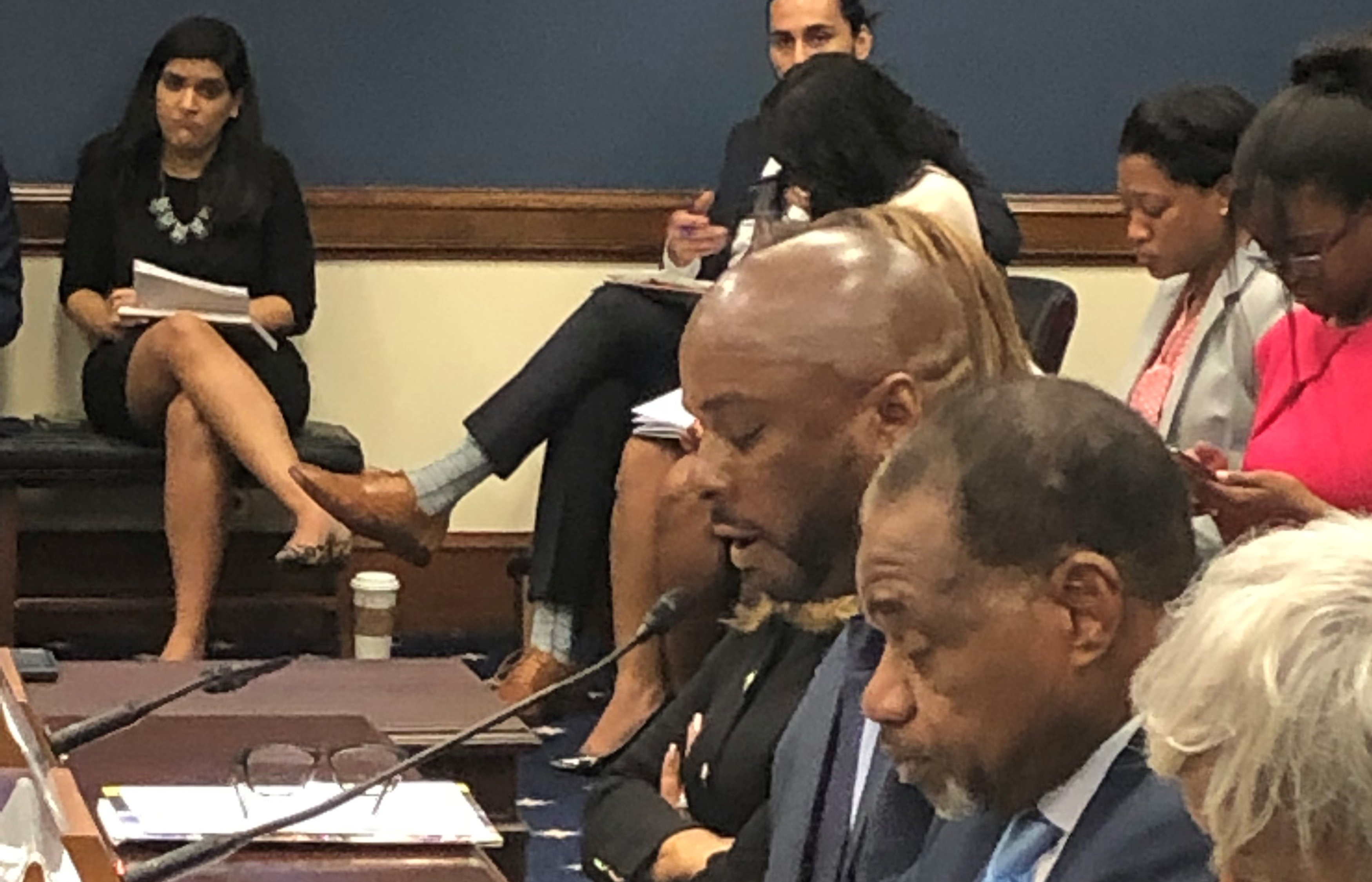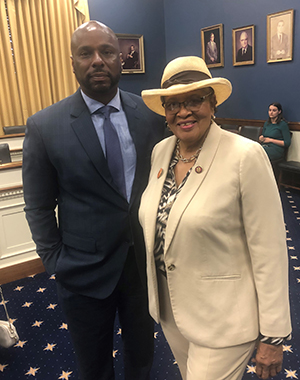
College of Business dean testifies in Washington DC
Dr. Michael Casson Jr. , dean of the University’s College of Business went to Washington, D.C. on April 30 to testify before a U.S. House of Representative subcommittee on the engagement of the Small Business Administration (SBA) with Historically Black Universities.
, dean of the University’s College of Business went to Washington, D.C. on April 30 to testify before a U.S. House of Representative subcommittee on the engagement of the Small Business Administration (SBA) with Historically Black Universities.
In his testimony before the U.S. House’s Small Business Subcommittee on Investigation, Oversight and Regulations, Dr. Casson noted that Delaware State University has been involved with the SBA in the past. However, he noted that “the impact of the SBA’s funding and services could be exponentially more significant if the University and the SBA strategically worked together to develop targeted programming that effectively integrates the talent and resources of both entities.”
Below is a testimony transcript of Dr. Casson’s recommendations to the subcommittee on how the SBA and HBCU’s can work more effectively together:
“To this end, there are three areas of focus that the SBA can engage the University that would further both of their mission; (1) infrastructure, (2) alumni/community partnerships and, (3) student engagement.
University Capacity Building: Not unlike many universities across the country, Research, Teaching, and Service represent the three pillars in higher education. However, there is one distinct difference when comparing Historically Black Colleges and Universities (HBCU) to Predominantly White Institutions (PWI), their ability to effectively monetize their research and service. HBCUs have traditionally, and currently focused their revenue generation efforts on the enterprise of Teaching; pressing their respective Admission Offices to increase enrollment to support growing financial gaps with little attention being given to Research and Service.
Contrarily, Universities such as John’s Hopkins and the University of Washington garner up to $2 billion in federal funding alone for their research and service activities. These institutions have effectively leveraged the full capacity of their brain trust by deploying the expertise of their faculty, staff, and students to solve many of the world’s most challenging problems. The ability of these universities to effectively and efficiently deploy their resources for the public good is not by chance but rather by design. And it is this design that our University and many other HBCUs could utilize the expertise within the SBA to develop further.
SBA opportunities such as Small Business Innovation Research and Small Business Technology Transfer programs, in addition to the billions of product and service needs of the federal government and private sector, requires a university’s infrastructure that is designed to leverage its assets both immediately and efficiently. For example, the SBA can play a critical knowledge role in HBCUs’ pursuit of the creation of Centers of Excellence designed to respond to global product and service needs through innovation.
Alumni/Community: The fastest growing population of entrepreneurs are African Americans, specifically African American women. However, even with this high propensity to become their own boss, African Americans’ road to business stability and expansion is paved with limited access to capital, professional networks and technical “know how.”
However, a viable partnership between HBCUs and the SBA, uniquely weaving and tailoring their various assets, could provide the necessary platform to engage the African American small business community as well as plug the resource gaps. For example, HBCUs are uniquely linked to African American community organizations such as fraternities and sororities, ministerial alliances, Urban Leagues and agricultural associations (for the land grant institutions), all of whom have economic development as part of their mission.
Moreover, DSU, like many other HBCUs, has a large first generation population representing many of the metropolitan areas of the Northeast and Mid-Atlantic. Thus, the SBA, in partnership with HBCUs, can create a network of services that extends into the communities that they represent.
University Student Engagement: Per a recent Young Entrepreneur Foundation survey, 90% of teachers and guidance counselors say their students are interested in becoming entrepreneurs; however, 75% of them say their students have no idea where to go for guidance. Unfortunately, the cultivation of this phenomenon amongst incoming freshmen and upperclassmen is often absent in our HBCUs due to lack of resources and/or capacity.
However, a strategic partnership with the SBA could be vital in our efforts to design and provide this knowledge and skill base via curricula and co-curricular activities. For example, the establishment of multidisciplinary innovation labs shared entrepreneurial ideation, and development spaces and skills training are areas where the SBA’s resources and expertise could play a vital role in the development of our students’ business acumen.”

